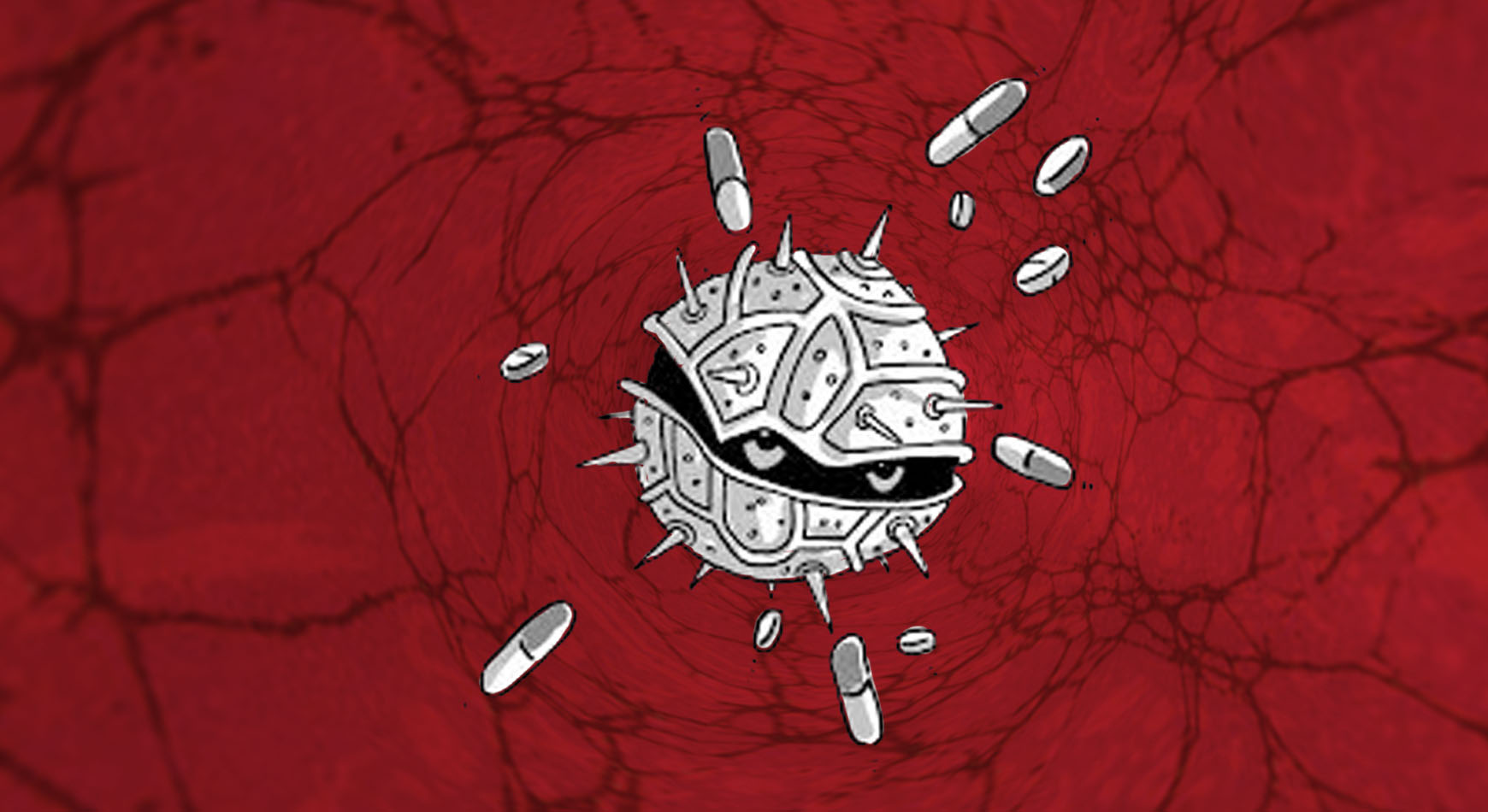Antibiotic is the most important drug ever created by human, as it helps fight bacterial infection, and thus saves life. But with time, antibiotic is losing its efficacy as the “special” drug, because of indiscriminate use of it. Human being is again faced with the danger caused by the threat of antibiotics “extinction.”
At the moment, in every corner of the world, most bacteria that cause serious infections are already resistant to antibiotics. Excessive antibiotics consumption will make surviving bacteria mutate into those that antibiotics can’t fight. They are called “superbugs.”
Moreover, the superbugs often escape from the attack of the body’s immune system as the their mutation make them unidentifiable. Superbugs require much stronger antibiotics, and the patients must be hospitalized because the antibiotics have to be passed through intravenous therapy (IV). Strong antibiotics can create stronger side effects, and in no time, bacteria can also be resistant toward it.
Another downside of excessive and improper use of antibiotics is that it destroys “good bacteria” in the body, and they are replaced by bad bacteria or fungi. This condition is called superinfection.
The magnitude of the issue caused by superbugs has caused a global concern, as stated by the American Medical Association (AMA) in 1995: “The world is faced with increasingly rampant bacteria that have become resistant against the entire existing antibiotics. It creates extraordinary public health crisis.”
We are currently facing a life-threatening crisis. Curable diseases such as tuberculosis, gonorrhea and typhoid fever currently cannot be cured due to antibiotic resistance. The improper use of antibiotics does not only create loss for patients, but also for the environment. The superbugs will infect the entire population, and nothing will work against it, even if some in the population only use certain antibiotic for the first time.
Research shows that the higher antibiotic consumption in a country, the worst the failure of antibiotic therapy due to superbugs. Clinical wise, the more we use antibiotics, the more frequent we fall ill as frequent antibiotic will disrupt our immunity system in the long run.
When do we need antibiotics?
Antibiotics are needed to fight against bacterial infections, such as typhoid fever, tuberculosis, urinary tract infection, diarrhea that comes with blood and meningitis. The drugs don’t work against viral infection like flu or diarrhea. Many people think antibiotics can cure or fasten the cure against all ailments. There are many more misunderstandings or misconception about antibiotic use that cause the high rate of antibiotic consumption.
Children, unfortunately, frequently receive antibiotics even though the majority of their illnesses are caused by viral infection. Virus can only be fought by our own immunity system. As time goes by, viral infection will subside on its own.
Antibiotics WON’T work for the following conditions:
- Common cold and flu
Many people think that antibiotic is in order when we have bad flu and when the phlegm is greenish yellow, while in fact the greenish phlegm means we are nearly recovered. The US Center for Disease Control or CDC, on its website www.cdc.gov, says the greenish phlegm indicates bacterial colonization, but they are good bacteria that live in our respiratory.
- Most cough or bronchitis
Coughing is not a disease; it’s a reflex to clear up the respiratory tract. You have to find out the cause, whether it is flu or allergy or other cause. Most cough on babies and children are caused by viral infection.
- Most sore throat
Inflammation does not necessarily mean infection by bad bacteria that have to be killed by antibiotics. Sore throat on baby and children is usually caused by viral infection, indicated by cold, with or without cough. This condition does not need antibiotics. Strep throat, on the other hand needs one. It attacks children over four years old, without cold and cough, and causes the gland under the jaw to swell and hurt.
- Majority of ear infection
- Diarrhea, Gastroenteritis
Inflammation in the digestive system, or gastroenteritis, indicated by diarrhea with or without vomiting, is caused by Rotavirus. Diarrhea is the body’s attempt to discharge toxin and virus/bacteria. It is incorrect to give anti-vomiting drug or medicine to “clog” the diarrhea. Those medicines can stop the diarrhea/vomiting symptoms but they cannot cure the illness. It seems that you or your child is getting better, but the disease is ongoing.
On children and babies, diarrhea and vomiting are mostly caused by virus, or bacteria and parasite in the case of food poisoning. Diarrhea can also be caused by food allergy and drug use, including antibiotics. Antibiotics use can kill good bacteria in our digestive system.
In the case of diarrhea, the main thing to do is to avoid dehydration by drinking a lot fluid. For babies, continue giving them breastmilk, and Oral Rehydration Solution (ORS) like pedialit or oralit in between. If the feces contains blood, check with the doctor, as the condition requires antibiotic.
How do we, as consumers, win the battle against antibiotic-resistance bacteria? We have to find out when we need or not need antibiotics. This awareness will help doctors, as in many cases, the patients ask for antibiotics.
Don’t consume antibiotics for viral infection like flu or cold, cough or sore throat. If you are uncomfortable with the viral infection, ask doctors to ease the symptoms but not with antibiotics.
Disinfectant should only be used in hospitals. At home, we don’t need to use it because bacteria at home are generally good bacteria. Using clean water and soap at home is sufficient.
Antibiotics save lives; it ‘s time we save antibiotics.
About the writers
Vida and dr. Windhi are members of volunteer team working to raise awareness on the proper use of antibiotics from NGO Yayasan Orangtua Peduli (YOP) and ReAct, an independent global network for concerted action on antibiotic resistance.








Comments